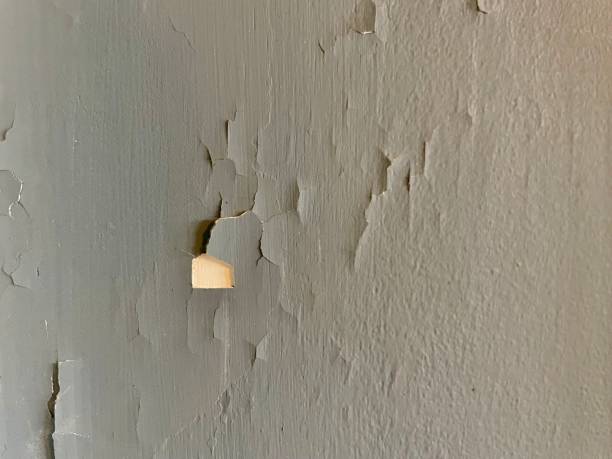What is FMV? (& How to Determine Fair Market Value of Home)
Understanding & calculating the fair market value of a home can be crucial when buying or selling a property, but for many, it’s not a simple thing to work out.
Determining your home’s value can be even more stressful if you’re trying to sell your home in a hurry.
To give you a simple explanation, a home’s fair market value is the estimated price that a buyer would be willing to pay, and a seller willing to accept, for a property in an open and competitive market.
But, of course, there’s much more to it than that, so let’s take a deeper dive…
Table of Contents
What is FMV in real estate?
The FMV full form meaning is “fair market value” and represents an impartial valuation that neither minimizes the property’s worth to the buyer nor inflates it for the seller and is crucial in sales, property insurance, taxation, and mortgage lending. The real estate FMV of property drives and influences market fluctuations.
So, what is the fair market value of a house? Our definition
The fair market value of a house is the price it would fetch in an open market, agreed upon by willing buyers and sellers with reasonable knowledge of that house. It is determined based on factors such as size, location, condition, comparable home prices, and current market trends.
In other words, the fair market value meaning refers to the price that a buyer would offer on it and that a seller would accept in an arms-length transaction. It’s not necessarily the same as what you paid for your house or what you’d like to receive from selling it; instead, it reflects how much someone else might be willing to pay for it. This basically sums up the difference between assessed value vs market value.
For example, if your house was built in the late ’90s and is located in an older neighborhood, while all other houses in the area have been recently renovated, its fair market value would naturally be lower than that of those properties.
On the other hand, if you’re fortunate enough to own a four-bedroom home with modern amenities and exceptional views within a sought-after neighborhood, you can expect it to fetch a much higher price on the open market.
How to determine fair market value of home
Determining the fair market value of a home typically involves analyzing the prices of similar properties, often referred to as “comparables” or “comps”. A comp is a property with similar characteristics to the one being valued, including the size, age, location, and condition of the property.
As a general guideline, home values are frequently estimated by averaging the prices of three or more comps. This strategy presents a balanced view of what a reasonable buyer would be willing to pay for a property in the current market.
Below are some specific ways that you can go about determining the fair market value of a home:
1. Check house purchase documents
By checking your house purchase documents, you’ll automatically know how to find the historical fair market value of a home. While it might not give you the current value, it can give you a quick base point.
If you bought your home through a real estate agent, the agent may have included an estimate of the home’s FMV in your paperwork and might be based on a formal appraisal or an informal market analysis.
If you don’t have access to these documents or if the home hasn’t been sold in recent years, you may have to do a bit more digging to get the historical fair market value of the home. Public property records is a good starting point!
Either way, remember to consider any major renovations or improvements made to the home since the purchase date as these can significantly affect a property’s value.
2. Use an appraiser
Perhaps the best way for owners to determine the market value of their home is to hire a professional real estate appraiser. Such experts use a combination of:
- Realtor experience
- Industry knowledge, and
- Local market trends to produce the most accurate valuation possible.
An appraiser will thoroughly examine your property, taking note of its condition, size, location, and any distinctive features that may impact its value. They’ll also compare it to recently sold properties in the area with similar characteristics. This rigorous approach ensures that the appraised value of a home is a reliable reflection of its current market value.
Keep in mind that while this service does come with a fee, and it also provides the most accurate and credible assessment of your home’s worth. More importantly, they can also give you advice on the cost of selling your home. This not only includes taxes but also recommendations for repairs, renovations and other strategies to maximize its resale value.
3. Conducting a comparative market analysis
A comparative market analysis (CMA) is a really good method if you have a solid understanding of real estate and property transactions since itinvolves researching recently sold houses in your neighborhood that are similar to your property.
To start, create a spreadsheet documenting key details of these houses—you can use various public databases for this data:
- Age and size
- Number of bedrooms, bathrooms and kitchens
- Other key features they have
- Location
- Style
- View
- Sales prices
Comparing this data to your property will give you insights into the current demand for your type of house in the market, along with an estimate of how long it may take to sell.
For more in-depth research, you can also engage with companies that buy houses as they can provide you with an estimate of how much your home is worth.
4. Property tax assessment
You should also consider obtaining property tax assessment documents for your house from your local taxing authority. You can then use this formula to estimate your property’s value:
Percentage of your home’s value being paid as tax annually divided by your tax rate
5. Use a home fair market value calculator
A home fair market value calculator, or FMV calculator, is a tool that can help you estimate the market value of your home based on its location, size, and unique features.
Here are a few notable online home value tools you can use:
Chase Home Value Estimator
Chase Bank offers a free FMV calculator, known as the Chase Home Value Estimator.
This intuitive online tool uses data from multiple sources to provide an estimate of your home’s value. It considers factors such as:
- Location
- Size
- Condition
- Unique features
- Recent sales in your area
- Listing prices in your area
This calculator is particularly useful if you require a quick, general estimate for private use, such as budgeting for home improvements or gauging whether it might be a good time to sell. However, it’s important to remember that this tool provides an estimate, not a formal appraisal.
Zillow Zestimate
Zillow is another site that offers a well-known fair market value of property calculator: the “Zestimate”.
Zestimate uses a proprietary algorithm to estimate home values based on a multitude of data points including location, square footage, and other features. While not a formal appraisal value, Zillow’s tool can be a good starting point when you’re considering whether to sell your home or refinance your mortgage.
Federal Housing Finance Agency (FHFA) House Price Index (HPI) Calculator
The FHFA HPI Calculator is a government-operated tool that estimates the value of homes in different regions of the U.S. over time. It uses historical changes in its House Price Index to project what a given property’s value might be today.
This FMV calculator is best used for tracking value over time or estimating the value of a property in an area where few comps are available. It’s not as precise for gauging current market value as the other tools, as it doesn’t account for specific features of an individual property.
Remember, while these tools can provide a helpful starting point, they should not replace a professional assessor when it comes time to sell your home or apply for a mortgage.
When you might need to find fair market value of property.
As a homeowner, determining the market value of your property isn’t just critical when you’re considering selling your home or applying for a mortgage; it can also be important in several other scenarios:
Fair market value for tax purposes
If you’re donating property, or if you’ve inherited a property and need to calculate estate tax, you may need to know how to determine fair market value for tax purposes. This value is typically used as the basis for calculating capital gains tax or inheritance tax.
Similarly, if you’re claiming a tax deduction for a property donation, the IRS usually requires an appraisal of the property to confirm its value.
It’s crucial to remember that tax laws and regulations differ by locality, so it’s always a good idea to consult with a tax professional before making a tax-related decision based on the estimated FMV of your property.
Inheritance
Establishing the FMV of property received through inheritance forms the basis for calculating capital gains tax if and when the property is later sold. This value becomes your “stepped-up basis,” and any future sale of the property would consider this amount to calculate the gain or loss.
In this situation, it’s advisable to hire a professional appraiser to accurately determine this value, as it can significantly impact your tax obligations. For example, when selling an inherited house, the owner would need to know the fair market value of the house at the time of death to accurately calculate any capital gains tax due on the sale.
The FMV can also be used to determine how much inheritance tax is due, if applicable. Additionally, this value will likely influence other decisions about the property such as whether it should be repaired or refurbished prior to sale, or even whether to sell it at all.
Rental
For landlords and property investors, understanding the estimated fair market value of a property can be crucial to determining whether a rental investment is financially viable. For example, the FMV can guide decisions around fair rental value (how much rent to charge), and whether the income generated is enough to cover the costs of the property, such as:
- Mortgage
- Property taxes, and
- Maintenance expenses
Moreover, if you’re considering purchasing a property to use for rental income, knowing the FMV can help you negotiate a fair purchase price. Purchasing a rental property for less than its FMV could result in increased profits, whilst buying a property for more than its FMV could make it more challenging to generate a positive return on your investment.
But what about when to sell a rental property? While the answer to this question depends on personal factors, such as your financial goals and timeline, understanding the FMV of your rental can be a useful tool in making this determination.
Consider this scenario: a landlord looking for information on how to sell a house with tenants in it.
In this situation, it’s even more important to accurately determine the fair market value of the property. A real estate professional will be able to provide an estimated sale price based on various factors, such as comparable sales in the area, local market trends and the condition of the house itself. This information can be invaluable when deciding whether to sell or keep a rental property.
Unfortunately, it’s not uncommon for landlords and property investors to find themselves selling rental property at a loss. This could be due to local market conditions or economic downturns that have affected the value of the asset. In these cases, understanding the value of your rental can help you determine whether or not it’s time to cut your losses and sell.
Understanding the FMV can also be useful in tax situations (specifically for rental property). For instance, if you’re depreciating the cost of a rental property on your taxes, the IRS generally requires that you use the property’s FMV at the time it was placed in service.
Similarly, when selling a rental property taxes are calculated based on the difference between the purchase price and the sale price. Knowing the FMV when you purchased and sold the property can be essential for accurately calculating your capital gains or losses.
Key takeaways on how to calculate fair market value of a property
As you can see, determining the FMV of your home can be a complex process, yet it’s crucial for numerous reasons, such as tax calculations, inheritance proceedings, and rental property investments.
If you want to sell your house fast, hiring a professional appraiser can provide the most accurate FMV. However, there are also online tools and resources that can offer a ballpark figure. These tools typically use comparable sales, local market trends, and the property’s current condition to estimate the FMV.
Nevertheless, it’s essential to remember that these tools should only be used as a guide, and it’s always prudent to consult with a real estate professional, tax advisor, or legal counsel for a thorough understanding of your situation. It’s also crucial to stay updated on real property law and regulations, as these can significantly impact your FMV and subsequent decisions relating to the property.
Understanding the FMV of your property is fundamental to making informed decisions, whether you’re wondering if “should I sell my house to an investor“, managing a rental property, or navigating tax-related matters.









